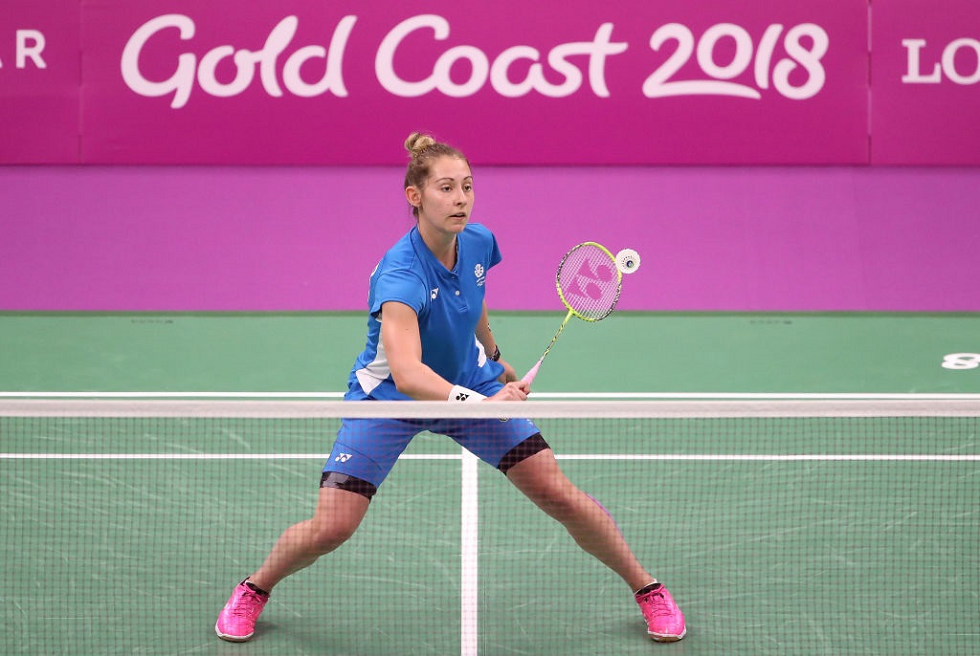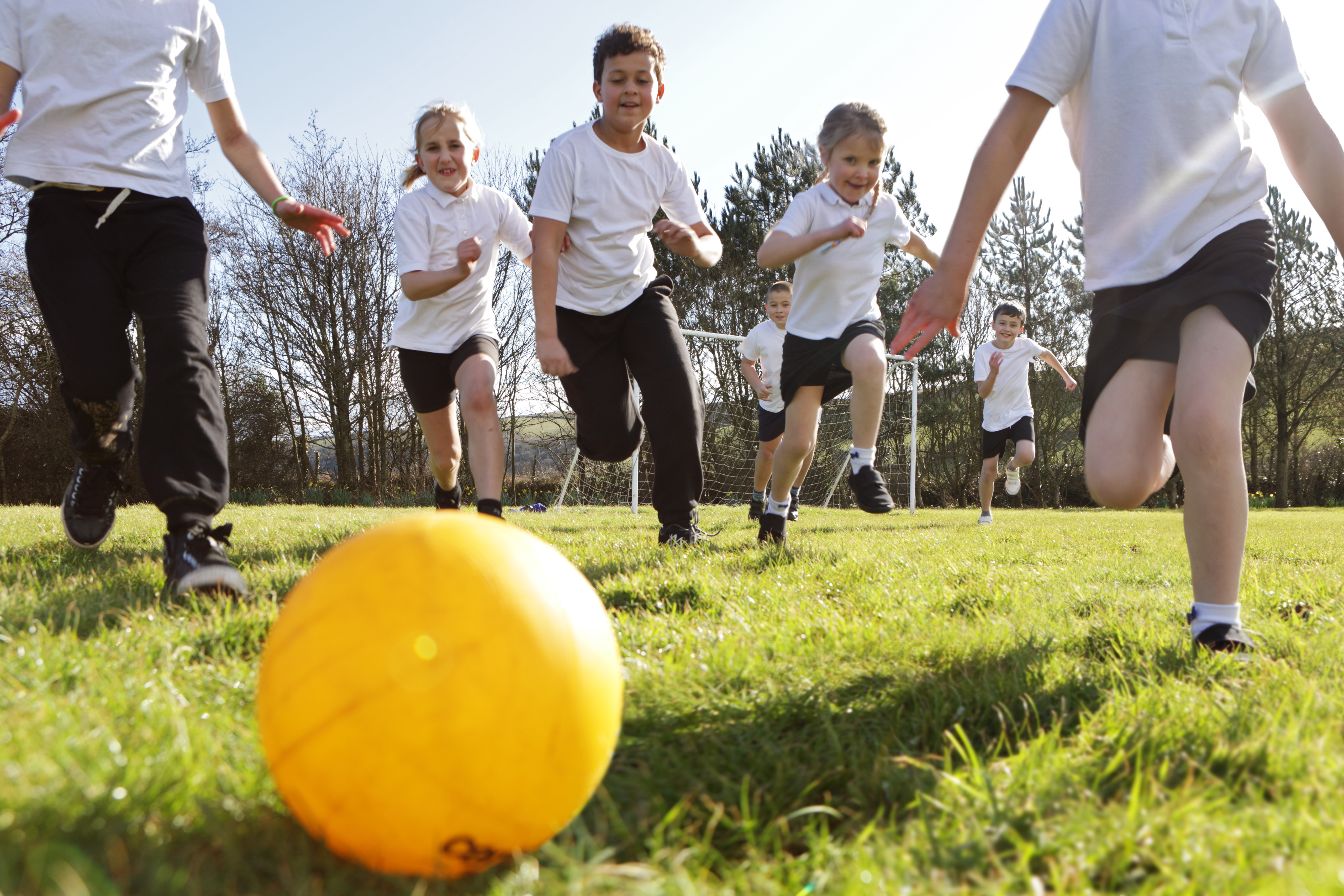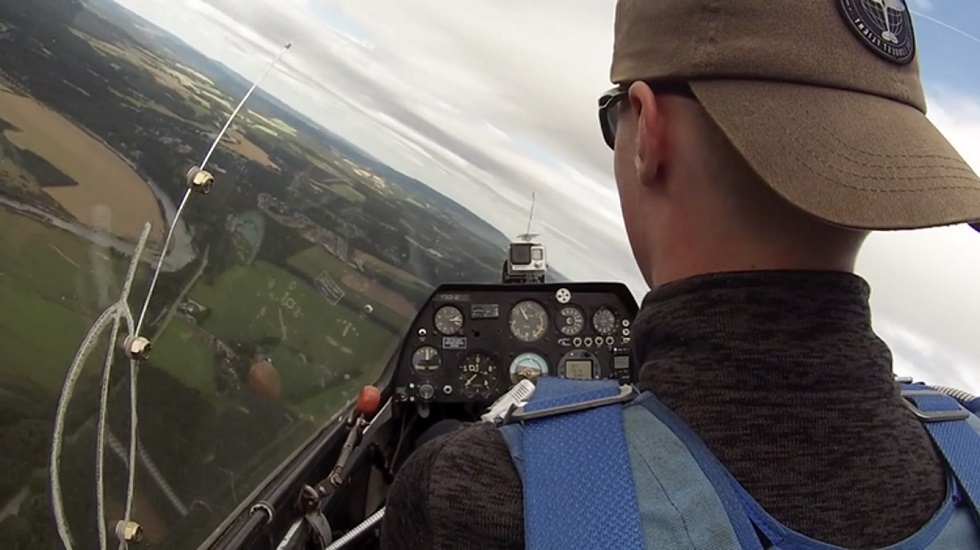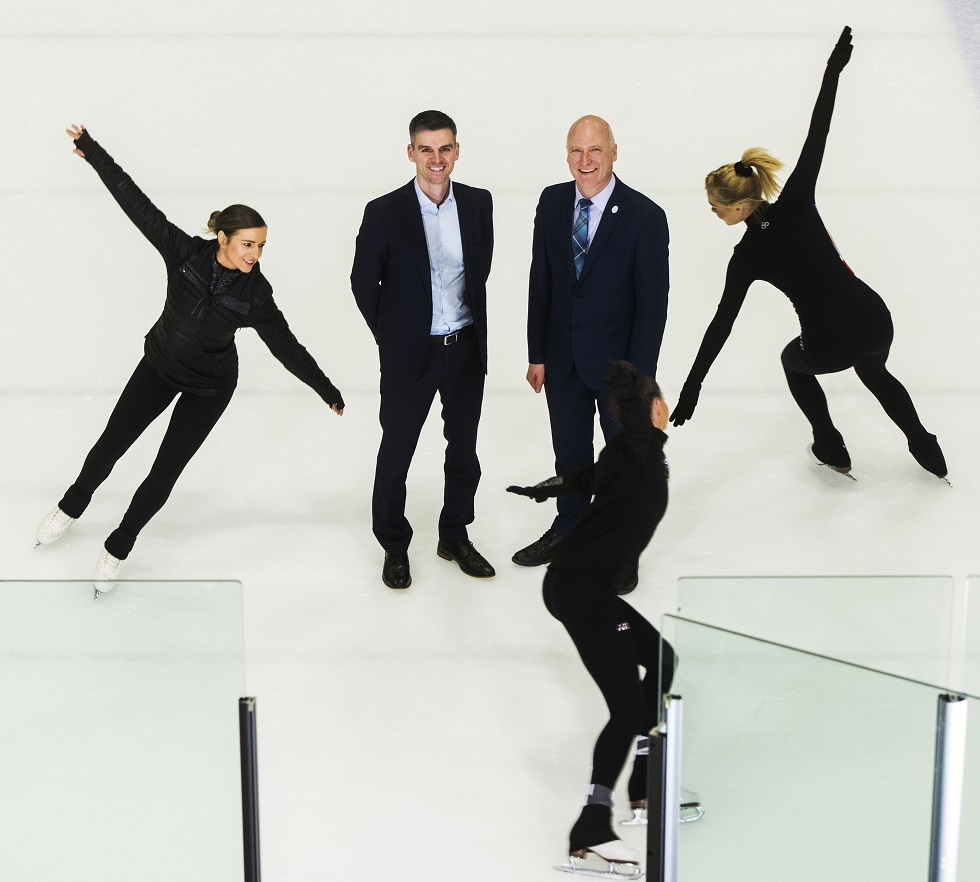Olympian Kirsty Gilmour is giving back to the sport that she loves by setting up a social enterprise to make badminton more accessible for communities across Scotland.
Badminton Academy Social Enterprise C.I.C. (BASE) is being set up by Kirsty, David Gilmour, who is the Chair of Badminton Scotland, and Andy Gallagher. It is a not for profit organisation, which is open to anyone at any level who would like to play.
The trio will work with local communities, schools, charities, and sports organisations, such as Badminton Scotland, Lanarkshire Badminton and sportscotland and their aim is to help strengthen communities as we begin to come out of the COVID-19 pandemic.
As an Olympian and double Commonwealth Games medallist, Kirsty is regarded as something of a role model for the sport and she is keen to build on that legacy to encourage more people to get involved in badminton. She said: “I have gained so much from my involvement with badminton and was always intending on giving back, but the pandemic has emphasised the struggles we are facing in society and so I thought this was the right time to try and create something that can help communities and the sport.
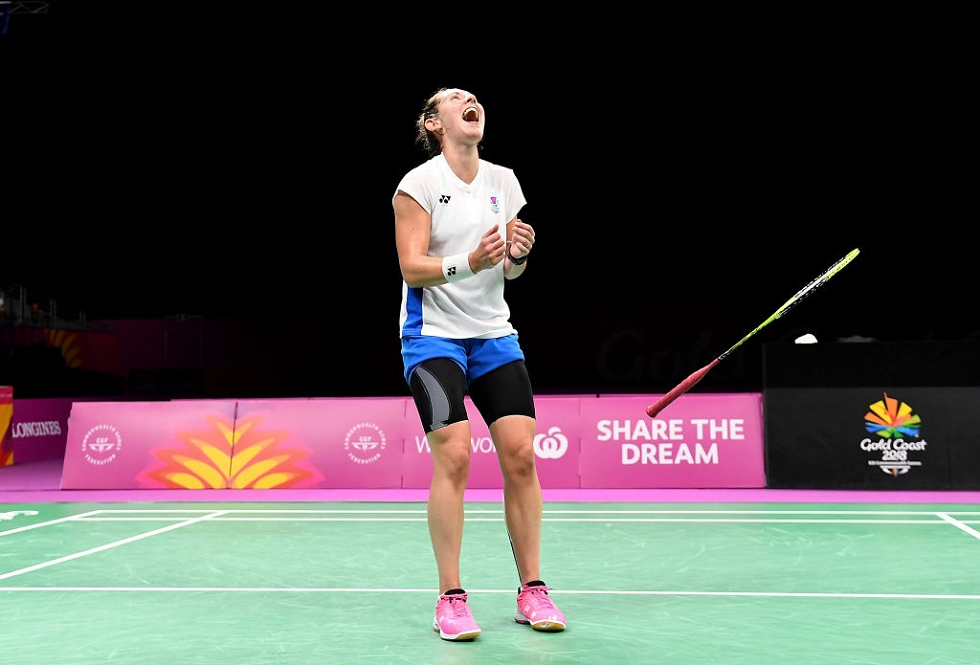
With BASE the aim is to create a commercially viable badminton club and the team are working with local communities to identify their specific needs and will tailor their plans to find the right solution. While the key focus will be badminton and developing the appropriate pathways to allow as many people as possible to get the most out of the sport, the social and community aspects are also very important.
A home for all the family
Kirsty wants BASE to be a place that feels like home for the whole family. A welcoming space where people can come together and have fun in a safe environment. It will also provide an opportunity to work with partners to promote the wider benefits of sport and physical activity, such as mental health, physical wellbeing and encouraging more women and girls to get involved.
Badminton is widely regarded as a sport for life, as it can be played at any age and ability, and that is something that Kirsty is keen to demonstrate through this project: “BASE is for everyone. It’s possible to make badminton completely accessible."
"We want to have an organised space that’s really safe and fun for anyone who wants to come in and mess around, all the way up to the young professional. The main focus will be on the communities and everyone from mums and toddlers right up to whatever age you still feel you can hit a shuttle, over 80s, over 90s, age is no barrier.”
The project is something of a family affair with Kirsty’s uncle, Badminton Scotland Chair David Gilmour, also very much involved. David explained:
“As Chair of Badminton Scotland I was interested to know first-hand the challenges that would face a club trying to establish themselves in a way that grows the grass root levels of the sport whilst helping the community it serves.
“As this is a key part of Badminton Scotland’s, and indeed sportscotland’s, strategy it is easy to see how our experience can be easily shared across the wider badminton and sporting community. I see this almost as a joint venture with the governing bodies supporting us to create a successful club, and perhaps using this as a pilot project from which we can share best practice.”
Building on experience
Chief Executive of Badminton Scotland, Keith Russell, together with Regional Development Officer, Euan Murray, and Head of Engagement, Nicky Watterson, have all been involved in the project right from the start so BASE will be affiliated and accredited by the governing body.
Badminton Scotland CEO, Keith Russell, commented: “These kind of initiatives are very important to the long-term development of badminton in Scotland. We have over 150,000 players participating every week – the same number as Denmark; one of the top countries in the world for badminton. A strong club structure is really important to retain players, coaches and volunteers, and sports clubs can provide strong connections into local communities, making them much more than a vehicle for just playing Badminton regularly.”
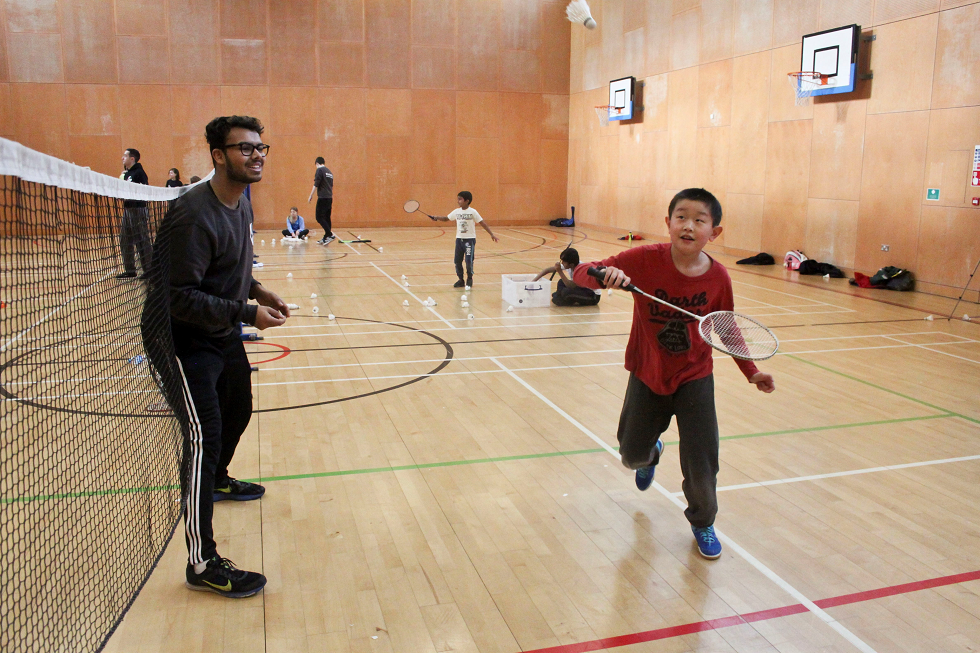
And BASE is not the first badminton social enterprise.
Edinburgh Badminton Academy (EBA) was set up by Greg Broadbent while he was at university. In a similar vein to BASE, the idea was to make badminton accessible to everyone.
Greg had noticed that Edinburgh had a lot of competitive players but if you weren’t a top player there was no obvious pathway for beginners and intermediates to progress.
One of the main problems with volunteer clubs is that there is a limited number of sessions a volunteer coach can run. Greg identified that there were large waiting lists for clubs around Edinburgh and set up EBA to solve this. Having someone coaching full time was a real driving force of EBA’s success and EBA is now in a position where they can set up new sessions in areas where demand is growing.
Planning for the future
Pre-COVID EBA had 230 regular junior players, 60 regular adult players and 50-100 pay as you go players. Greg has big plans to build on that success post-COVID: “We already have a ‘no questions asked’ discount in place but we want to expand on this to ensure we are reaching players who haven’t always been able to afford to get involved.
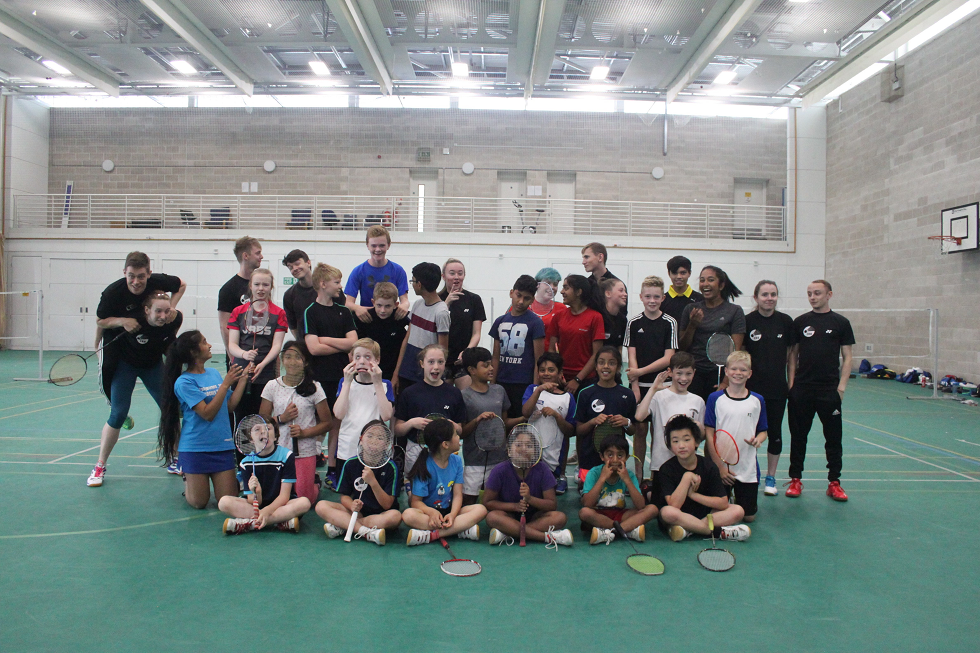
“We have plans to start disability sessions and we also want to increase the number of women participating in sport. We’ve done well at retaining players, lots of girls start a few sports and tend to drop off, however we’ve kept them involved by asking them ‘What can we change? What do you want? How can we meet your needs?’
“The ‘first generation’ of EBA players have now reached national level and the U15s are winning national titles. It’s easy to focus on their success but the thing that has made them successful has been the structure and community around them; having lots of beginners leads to lots of intermediates. Size means we can bring everyone together and by bringing so many people on board we have created players who have gone from complete beginners to competitive players.”
Max and Lois got involved with EBA after discovering it online when they wanted to find a club to improve their game and progress from playing in friends’ gardens.
“EBA has had a massive impact on us and our lives. It has allowed us to improve our badminton skills to a huge extent, improve our resilience, and we have also made many new friends. The sessions brought out some competitiveness in us (but not too much!), and encouraged us to think tactically, not just in badminton matches, but also with other sports.
“We definitely enjoy the monthly singles league tournaments, which allow us to put our knowledge and skills to the test and practise them in matches against players of the same ability, which makes a huge difference in our understanding of the sport.
Connecting the community
“Especially during lockdown, EBA made a huge difference to us as the EBA team realised the power of online sessions very quickly. We have a choice of several online workout sessions per week - including ‘no noise no impact’ sessions which are ideal for all of us living in flats without access to gardens, we can take part in the sessions without disturbing the neighbours. In addition, we have weekly challenges, and (when the restrictions and weather allow it), outdoor sessions for all juniors to play badminton in the Meadows. This allows the players to keep fit, keep in contact with friends in the EBA community, and get outside during the lockdown.
"This is key to our mental health as it gives us something to look forward to and keeps us healthy and active."
“We really appreciate everything that EBA has done for us, and very much look forward to restarting face to face again as soon as possible.”
A Google search set Tess Moran off on her badminton journey with EBA: “I played badminton very casually with a friend at university. When I graduated and suddenly had a whole bunch of spare time on my hands, once a fortnight with my friend seemed too far apart so I literally typed ‘badminton clubs in Edinburgh’ into Google.
“EBA was the one with the most flexible options, but also the adult training was an unusual feature. I’m competitive so the option of training and getting better appealed to me. From there my competitive spirit took over a little.
Net gains
“One training session a week soon turned into three or four, with additional games sessions, and a tournament every few weekends. Seeing my coaches and fellow players so often soon made them very good friends, and before I knew it half my social circle came from EBA.
“I’m now captain of the women’s doubles and mixed doubles league teams, have started my badminton basics coaching certificate, and Greg has appointed me the club’s social secretary. It’s probably one of the most evolved Google searches I’ve ever done! “
Keith Russell sums up the importance of this kind of project: “Our club structure needs to improve, with bigger clubs able to provide opportunities for all abilities and ages, and as a result connect more effectively into the communities they are based in.
"These two examples are exactly the type of development that we are trying to support across the whole country, to create a strong network of clubs at the appropriate size and scale for the community they are located in.”
Find out more
- Find out how you can get involved in badminton in Scotland
- Meet the badminton community from Skye to the Broch via China!
- Edinburgh Badminton Academy
- BASE

